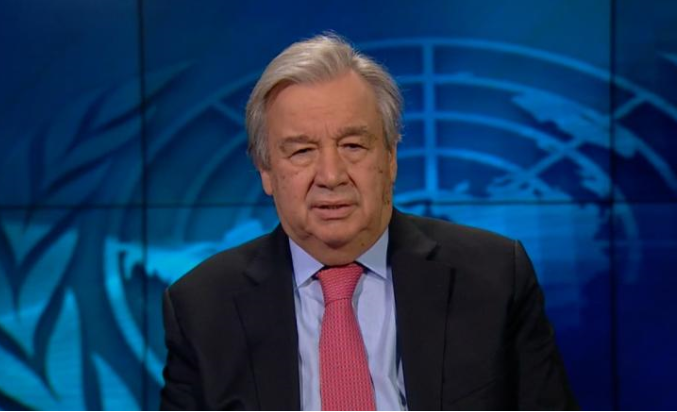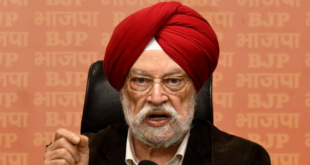- 2021 is a Red Alert year
 Seema Javed
Seema Javed
The UN’s climate body (UNFCCC) has released an assessment of the 48 national emission reduction plans submitted by the end of 2020. The plans account for 75 parties to the UN, as the EU27 is counted as one bloc, and cover an estimated 30% of global greenhouse gas emissions.
While most countries have incrementally increased ambition, the combined impact puts them on a path to achieve only a 1% reduction of emissions by 2030 compared to 2010 levels. The Intergovernmental Panel on Climate Change warns emission reduction ranges to meet the 1.5C temperature goal should be around 45% lower, and 25% to avoid 2C of warming.
Patricia Espinosa, Executive Secretary of UN Climate Change
“This report shows that current levels of climate ambition are very far from putting us on a pathway that will meet our Paris Agreement goals. I call on all parties – even those who have submitted NDCs – to reflect on this and increase ambition.”
“At the moment it is like we are walking into a minefield blindfolded. What we need is much more radical and transformative than we have now. We need concrete plans to phase out fossil fuels as fast as possible.”
The report was requested by Parties to the Paris Agreement to measure the progress of national climate action plans — known as NDCs — ahead of the COP26 UN climate summit this November in Glasgow.
Analysis from Climate Action Tracker suggests of the major economies to have submitted new targets, only the UK, EU, Argentina, Chile, Norway, Kenya and Ukraine represented a shift in ambition.

Japan, South Korea, Russia, New Zealand, Switzerland, Australia all delivered plans that failed to improve on their 2015 target. Brazil’s climate plan lacked any goals to cut emissions by 2030, or to stem rising deforestation rates.
Laurence Tubiana, France’s Climate Change Ambassador and Special Representative for COP21 and CEO of the European Climate Foundation said that-
“This report’s conclusions are alarming. Climate plans must reflect the severity of the climate crisis, and be aligned with the Paris Agreement. We need G20 countries to lead – I hope the US and China can match the EU in delivering strategies that will set us on a path to net zero. Governments who have delivered unambitious plans should – as the UN suggests – reconsider and resubmit plans by COP26.”
Tougher plans are expected from the US and China – which together account for nearly 30% of global GHG – ahead of a US-hosted April 22 climate summit.
It’s staggering how far off track countries are to dealing with the climate crisis. Currently they are set to achieve just a 1% reduction of emissions by 2030 compared to 2010 levels. Considering how much more we know about the climate emergency since 2010 that is staggering.
If you would believe the rhetoric of world leaders you’d think they were making great progress and about to solve it. This is why it’s good to have a report that lays out the facts in stark reality.
Some countries have done well upgrading their Paris Agreement pledges, but many others, such as Brazil, Japan, Australia, Mexico and even New Zealand have done nothing. This state of affairs cannot continue and we need to see things change dramatically at the COP26 summit in the UK this year.
Alok Sharma, incoming COP26 President said that-‘This report should serve as an urgent Call to Action and I am asking all countries, particularly major emitters, to submit ambitious 2030 emission reduction targets. We must recognise that the window for action to safeguard our planet is closing fast.’’
While G20 energy-related CO2 emissions decreased by 0.1% in 2019, the world’s major economies are collectively failing to deliver on climate. The bloc, which accounts for around 75% of global emissions – directed around 30% of COVID stimulus funds into green areas, a Climate Transparency report revealed in late 2020, with Russia, Mexico and Saudi Arabia outliers in offering no support to clean energy.
Also Read : Women in Saudi can now join military
Christiana Figueres, Co-founder of Global Optimism, former Executive Secretary of the UNFCCC (2010-2016)
“This is a status report. It’s weak but there are many big emitters who can significantly change the picture this year. Their promises are strong; their delivery can be stronger.”
Also Read : School abduction: Over 300 Nigerian girls missing
“Countries including the United States, China, Japan and other large economies are seeing it in their own competitive interests to reach 50% emissions reductions by 2030 in order to meet the goals of the Paris Agreement. I have high hopes they will deliver.”
 Jubilee Post News & Views
Jubilee Post News & Views





